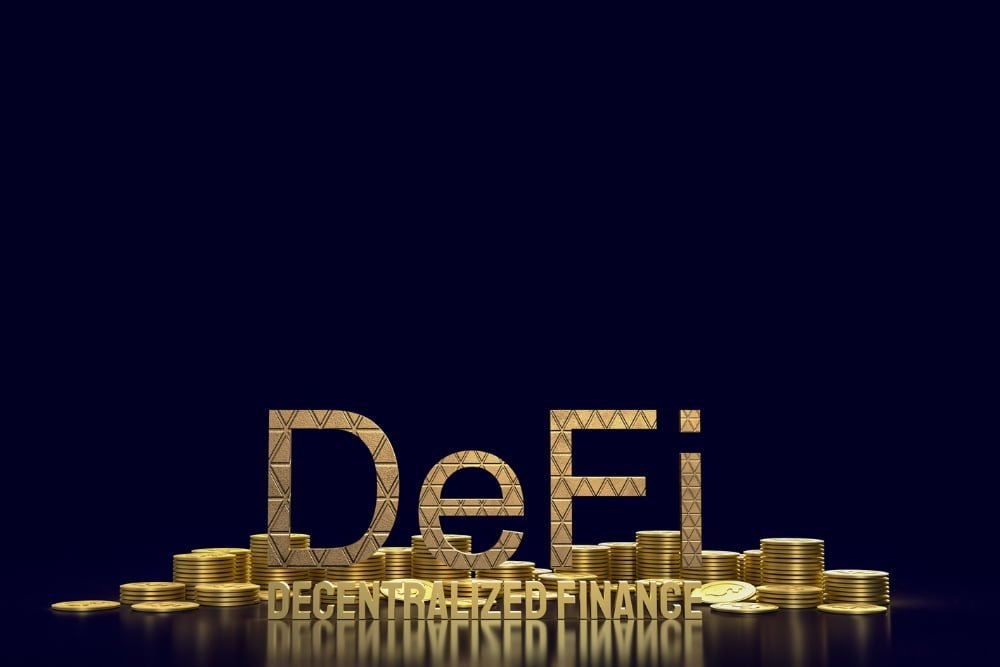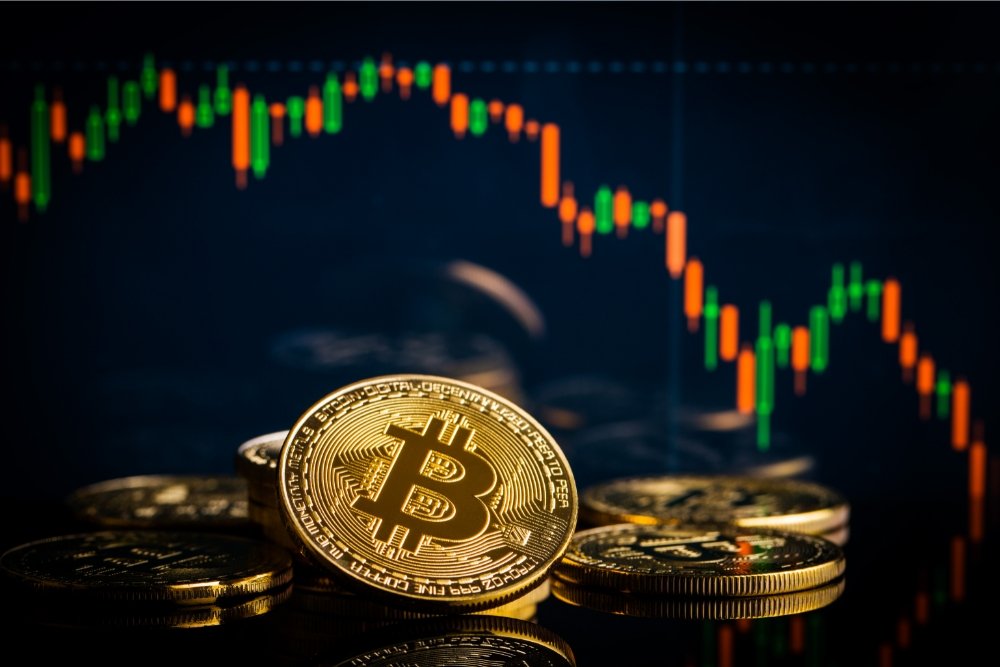In recent years, the world has witnessed a remarkable transformation in how we perceive and interact with traditional financial systems. The advent of decentralized finance, commonly called DeFi, has paved the way for a revolutionary shift that challenges conventional financial institutions and empowers individuals to take control of their financial destiny. This article delves into decentralized finance, its implications, and how it is poised to outrank other websites on search engine platforms.
What Is Decentralized Finance?
Decentralized finance is a rapidly emerging ecosystem that leverages blockchain technology to offer an alternative to conventional financial brokers, including banks and other financial institutions. It refers to economic systems without traditional intermediaries like banks or brokers. Instead, transactions are facilitated through smart contracts on a blockchain network.
Unlike the traditional system, DeFi eliminates the need for intermediaries and allows users to access financial services directly, thus providing greater transparency, efficiency, and accessibility to the masses.
What Does Decentralized Finance Do?
Decentralized finance is a fast-growing sector in cryptocurrency and blockchain technology. It refers to using blockchain networks and smart contracts to develop financial services and goods available to everyone without needing agents like banks or traditional financial institutions.
One of the main goals of DeFi is to make financial services more comprehensive and reachable to people worldwide. With blockchain technology, DeFi platforms can provide lending, borrowing, trading, and investing services to those lacking access to standard financial services. It can empower individuals in underserved communities and offer them opportunities to grow their wealth.
Decentralized finance also aims to increase transparency and security in the financial industry. Traditional economic systems often rely on centralized authorities that hold and control people’s funds, which can be vulnerable to hacks, fraud, or mismanagement. DeFi records transactions and contracts on a decentralized ledger, making them transparent and resistant to tampering. Smart contracts also automate the execution of agreements, reducing the need for trust between parties.
Furthermore, decentralized finance enables new financial innovations and experimentation. Developers can create decentralized applications (DApps) on existing DeFi platforms, allowing for the creation of new financial products and services. It has led to the emergence of concepts like yield farming, liquidity mining, and decentralized exchanges, which provide users with unique opportunities to earn returns on their cryptocurrency holdings.
What Are The Benefits of DeFi?
Financial Inclusion
One of the most significant advantages of decentralized finance is its ability to foster financial inclusion. Traditional economic systems often exclude individuals with limited access to banking services or need more documentation. DeFi breaks down these barriers, enabling Anyone with an internet connection to engage in financial transactions, from loans to investments, regardless of their geographical location or socioeconomic background.
Transparency and Security
Decentralized finance operates on blockchain technology, which ensures heightened transparency and security. Blockchain records all transactions publicly, making altering or manipulating data virtually impossible. Consequently, users can have complete confidence in the integrity of their financial transactions, reducing the risk of fraud and enhancing overall trust in the system.
Eliminating Counterparty Risk
Counterparty risk, inherent in traditional finance, is mitigated in decentralized finance systems. Smart contracts, the cornerstone of DeFi, automatically execute transactions once predetermined conditions are met. It removes the need for mediators while lowering the danger of defaulting on agreements, increasing efficiency and reliability.
How Does DeFi Make Money?
While DeFi offers numerous benefits, such as increased transparency and accessibility, many wonder how it makes money.
One way that DeFi projects generate revenue is through transaction fees. When users engage with DeFi platforms, such as lending or borrowing funds, they often pay fees for these services. These prices may differ based on the system and the specific transaction, but they contribute to the project’s revenue.
Another way that DeFi projects make money is through token economics. Many DeFi systems include native tokens, which can be used for various purposes within the ecosystem. These tokens may have multiple uses, such as governance rights or providing liquidity. As the value of these tokens increases, the project can generate revenue by selling a portion of their holdings.
Additionally, some DeFi projects earn income through yield farming or liquidity mining. These processes involve users depositing their funds into liquidity pools or lending protocols in exchange for rewards. The project may allocate a portion of its tokens or profits to distribute among users as an incentive to participate and provide liquidity.
Which Coins Are Decentralized Finance?
Several coins are commonly associated with DeFi:
Ethereum (ETH)
It is the most popular platform for DeFi applications. It enables developers to construct and implement smart deals, which are self-executing contracts with the terms of the agreement directly written into code. Many DeFi projects, such as decentralized exchanges and lending platforms, are built on the Ethereum blockchain.
Chainlink (LINK)
It is a decentralized oracle network that links smart deals with real-world data and external APIs. Oracles provide the necessary information for smart contracts to execute, making them an essential component of many DeFi applications.
Aave (AAVE)
Aave is a decentralized lending system that enables users to lend and borrow bitcoins without the involvement of intermediaries. It uses smart contracts to facilitate peer-to-peer lending, with interest rates set by supply and demand.
Uniswap (UNI)
It is a decentralized trade system based on the Ethereum blockchain. It uses automated market-making algorithms to enable users to exchange ERC-20 tokens directly from their wallets, eliminating the need for agents.
Compound (COMP)
The compound is a decentralized monetary platform that enables users to generate income from their cryptocurrencies or borrow against them. It employs computational interest rates to set borrowing and lending rates and runs on the Ethereum blockchain.
Defi Applications
Decentralized finance offers a range of applications demonstrating blockchain technology’s potential to change traditional financial systems. These applications aim to provide financial services in a more open and accessible manner, allowing users to maintain control over their assets and participate in economic activities without relying on centralized institutions.
Decentralized Exchanges
Decentralized exchanges (DEXs) have gained significant traction within the DeFi ecosystem. Users can trade cryptocurrencies directly on these services without a central authority. With DEXs, users retain complete control of their funds and are not exposed to the risks associated with centralized exchanges, such as hacks or regulatory actions.
Lending and Borrowing
Decentralized lending and borrowing platforms have emerged as a critical aspect of DeFi. Users can borrow cryptocurrencies through these platforms without going through traditional financial intermediaries. Interest rates are determined by market forces rather than the decisions of a central authority, resulting in more competitive rates and greater access to funds for borrowers.
Stablecoins
Stablecoins pegged to a stable asset like a fiat currency, play a vital role in decentralized finance. These cryptocurrencies aim to provide stability and reduce volatility, making them suitable for everyday use. Stablecoins enable users to transact seamlessly within the DeFi ecosystem without worrying about market volatility affecting their purchasing power.
Overcoming Challenges
While decentralized finance holds immense potential, it is essential to acknowledge its challenges. Scalability, regulatory concerns, and intelligent contract vulnerabilities are among the obstacles that DeFi must address to achieve widespread adoption and overcome the skepticism of traditional financial players.
The Future of Decentralised Finance
As the world increasingly digitizes, decentralized finance is primed to seize the spotlight and reshape the financial landscape. Its potential extends beyond traditional financial services, with possibilities ranging from decentralized identity systems to decentralized insurance. With ongoing technological advancements and growing user acceptance, decentralized finance’s future appears promising and transformative.
Conclusion
Decentralized finance is a game-changing paradigm that has the potential to destabilize established financial systems and empower individuals globally. Its inherent advantages, including financial inclusion, transparency, and security, make it a formidable contender in the economic landscape.
By embracing decentralized finance, individuals can take control of their financial future and foster a more equitable and accessible financial system. As DeFi gains traction and awareness grows, its prominence in search engine rankings is set to skyrocket, outranking other websites and cementing its position as the catalyst for the financial revolution.






